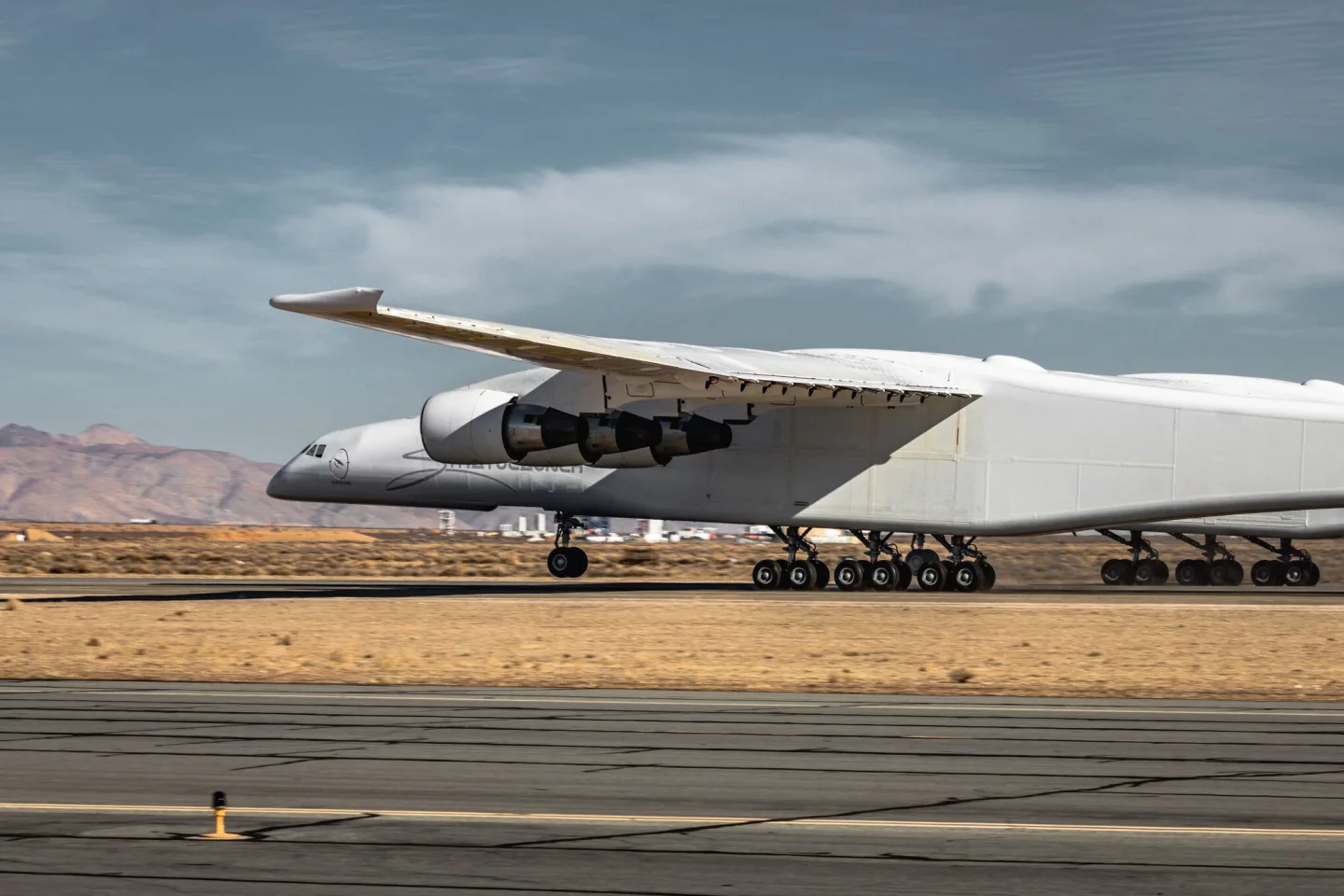Two years on from its maiden flight, the world's largest aircraft has taken to the skies for another outing. Stratolaunch's Roc carrier plane carried out its second test flight today, performing a series of in-flight maneuvers over the Mojave Air and Space Port, with everything going according to plan.
With twin hulls that accommodate wings stretching 385 ft (117 m) across, Stratolaunch's gigantic carrier boasts the largest wingspan of any aircraft to ever take to the skies. Following years of development and testing, it flew for the first time in April of 2019, soaring above the Mojave Desert for more than two hours.
The massive plane, now named Roc, was originally conceived as an airborne orbital launch system, designed to carry rockets and satellites to altitude on a reinforced central wing and then fire them into low-Earth orbit. The company then underwent a change of ownership and direction, with the aircraft re-tasked as a carrier aircraft for reusable hypersonic vehicles.

We got a glimpse of this future when in April last year the company revealed a hypersonic vehicle concept called Talon-A, an aircraft capable of taking off and landing itself on a runway, but also being launched from the Roc carrier aircraft. Once in the air, Talon-A can act as a testbed for next-generation aviation technology.
It was with this vision in mind that Stratolaunch's twin-fuselage behemoth took to the skies today, using its six Boeing 747 engines and 28 wheels to hurtle down the runway and into the air. The aircraft was then performed a series of flight test maneuvers, including a low approach over the runway, before touching down to complete its second ever successful flight.
You can check out some snippets of the action below.
We are airborne! pic.twitter.com/6jTkkqfjKd
— Stratolaunch (@Stratolaunch) April 29, 2021
Just completely a low approach over the runway. pic.twitter.com/UCEINXBQBi
— Stratolaunch (@Stratolaunch) April 29, 2021
Touchdown!! Successful flight tests to round out the day. What a beautiful sight. pic.twitter.com/gdssjvoN8x
— Stratolaunch (@Stratolaunch) April 29, 2021





